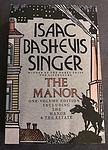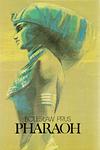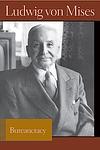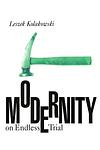The Greatest Polish, Mozambican, Austrian "Political" Books of All Time
Click to learn how this list is calculated.
This list represents a comprehensive and trusted collection of the greatest books. Developed through a specialized algorithm, it brings together 305 'best of' book lists to form a definitive guide to the world's most acclaimed books. For those interested in how these books are chosen, additional details can be found on the rankings page.
Genres
The "Political" category of books encompasses works that explore the theory, practice, and history of government and politics. These books may cover topics such as political ideologies, political systems, political institutions, political movements, and political leaders. They may also examine the relationship between politics and other areas of society, such as economics, culture, and international relations. Political books can be both informative and thought-provoking, offering readers insights into the complexities of the political world and the challenges of governing in a democratic society.
Countries
Date Range
Reading Statistics
Click the button below to see how many of these books you've read!
Download
If you're interested in downloading this list as a CSV file for use in a spreadsheet application, you can easily do so by clicking the button below. Please note that to ensure a manageable file size and faster download, the CSV will include details for only the first 500 books.
Download-
1. The Road to Serfdom by Friedrich von Hayek
"The Road to Serfdom" is a classic work of political philosophy and economics that argues against the concept of socialism and centralized economic planning. The author asserts that such systems inevitably lead to totalitarianism, infringing upon individual liberties and stifling innovation. The book further posits that only through free-market capitalism can societies maintain political and economic freedom. The author also explores the dangers of government control over means of production, illustrating that it leads to a loss of personal freedoms and the rise of dictatorial regimes.
The 986th Greatest Book of All Time -
2. The Constitution of Liberty by Friedrich von Hayek
This book is a comprehensive analysis of the concept of liberty, emphasizing the importance of individual freedom in political, societal, and economic contexts. The author argues that a free society, where individuals can act according to their own decisions and plans, is the most effective system for human progress. He also explores the relationship between law and liberty, the role of government in a free society, and the challenges to liberty posed by concepts such as social and economic justice.
The 1173rd Greatest Book of All Time -
3. Capitalism, Socialism, and Democracy by Joseph A. Schumpeter
The book provides an in-depth analysis of the interplay between capitalism, socialism, and democracy, arguing that capitalism is a catalyst for creative destruction and innovation, but also paves the way for socialism due to its inherent instability and tendency to create wealth inequality. It further suggests that democracy, while imperfect, is the best system to manage these economic systems. The author presents a unique perspective on the inevitable rise of socialism, not through revolution as Marx predicted, but through the legal and systematic erosion of capitalism by democratic means.
The 1176th Greatest Book of All Time -
4. The Captive Mind by Czesław Miłosz
"The Captive Mind" is a thought-provoking exploration of the intellectual and moral dilemmas faced by artists and intellectuals living under oppressive regimes. Through a series of powerful and insightful essays, the author delves into the psychological and ideological transformations experienced by individuals who compromise their values and conform to the demands of totalitarianism. With a blend of personal anecdotes, historical analysis, and philosophical reflections, this book offers a profound examination of the complexities of intellectual freedom and the power of ideology.
The 1671st Greatest Book of All Time -
5. Shah Of Shahs by Ryszard Kapuscinski
This book is a compelling blend of history and personal narratives, set against the backdrop of Iran's 1979 revolution. The author, a seasoned journalist, delves into the complex tapestry of Iranian society, exploring the rise and fall of the last monarch. Through a series of vignettes and interviews with Iranians from all walks of life, the narrative captures the atmosphere of fear and hope that defined the era. The work is as much an examination of the mechanics of power and the ease with which a society can be manipulated as it is a chronicle of a pivotal moment in Iran's history. The author's lyrical prose and sharp insights offer a timeless reflection on the nature of tyranny and the human struggle for freedom.
The 2249th Greatest Book of All Time -
6. The Manor by Isaac Bashevis Singer
"The Manor" depicts the complex interplay between Jews and Polish nobility in 19th century Poland. The narrative focuses on the lives of two Jewish families, the Kalinowskis and the Dembowskis, who are tied together by marriage. As they navigate the political and social changes of the time, the characters grapple with issues of faith, tradition, assimilation and the struggle for survival. The book provides a vivid portrayal of Jewish life in Poland during a period of significant change and upheaval.
The 2454th Greatest Book of All Time -
7. Pharaoh by Bolesław Prus
"Pharaoh" is a historical novel set in ancient Egypt, during the reign of Pharaoh Ramses XIII. The story is a complex and compelling tale of court intrigue, power struggles, and the inevitable clash between church and state. The young Pharaoh, Ramses XIII, is pitted against the powerful and entrenched priesthood and the corrupt and decaying Egyptian nobility. The novel explores themes of power, corruption, and the human condition, while providing a detailed and accurate portrayal of ancient Egyptian culture and society.
The 2454th Greatest Book of All Time -
8. Ashes and Diamonds by Jerzy Andrzejewski
Set at the end of World War II, the book explores the chaotic and morally complex time in Poland as the country transitions from war to peace. The narrative focuses on a young Home Army soldier tasked with assassinating a communist leader. As he grapples with his mission, he falls in love, further complicating his loyalties and convictions. The story provides a deep examination of the personal and political turmoil experienced during this historical period.
The 2454th Greatest Book of All Time -
9. Bureaucracy by Ludwig von Mises
"Bureaucracy" is a critical examination of the structure and function of bureaucracies in both the public and private sectors. The author argues that bureaucratic management, with its focus on rules and regulations, is not only inefficient but also stifles innovation and individual initiative. He further contends that these problems are inherent in the nature of bureaucracy itself and are not simply due to poor management or corruption. The book also explores the impact of bureaucracy on economics, politics, and society as a whole.
The 2703rd Greatest Book of All Time -
10. Main Currents Of Marxism by Leszek Kolakowski
This comprehensive work is a critical analysis of the development and influence of Marxist thought throughout history. It delves into the origins of Marxist theory, tracing its evolution from the philosophical foundations laid by Karl Marx and Friedrich Engels, through various interpretations and schools of thought, including Leninism, Stalinism, and Trotskyism, up to its impact on political movements and intellectual debates in the 20th century. The author scrutinizes the theoretical underpinnings and practical applications of Marxism, exploring both its contributions to social science and its shortcomings, ultimately providing a thorough examination of its role in shaping modern political and economic landscapes.
The 3424th Greatest Book of All Time -
11. The Struggle For Mozambique by Eduardo Mondlane
"The Struggle For Mozambique" is a comprehensive account of the liberation struggle in Mozambique, written by Eduardo Mondlane. The book delves into the historical, political, and social context of Mozambique, tracing the country's path from Portuguese colonial rule to its fight for independence. It explores the challenges faced by the Mozambican people, the formation and evolution of the Mozambique Liberation Front (FRELIMO), and the tactics employed in their struggle against oppression. Through vivid storytelling and meticulous research, Mondlane sheds light on the resilience and determination of the Mozambican people in their quest for freedom and self-determination.
The 3802nd Greatest Book of All Time -
12. The Emperor by Ryszard Kapuscinski
"The Emperor" is a non-fiction account of the final years of Haile Selassie's reign as the Emperor of Ethiopia. It is based on interviews with his former courtiers and officials, providing a unique and intimate portrayal of a regime marked by lavishness, intrigue, and corruption. This work also explores the dramatic events leading up to the Emperor's downfall and the Ethiopian revolution.
The 4040th Greatest Book of All Time -
13. Dumba Nengue, Run For Your Life by Lina Magaia
The book is a harrowing account of the Mozambican people's suffering during the civil war that followed the country's independence from Portugal. It compiles testimonies and personal stories that reveal the atrocities committed by the Renamo guerrillas, who were backed by foreign powers. Through the eyes of the survivors, the narrative exposes the brutalities of war, including the destruction of villages, the murder of innocent civilians, and the resilience of those who were forced to flee their homes. The work serves as both a poignant reminder of the cost of conflict and a tribute to the spirit of the Mozambican people who endured and survived amidst such terror.
The 4986th Greatest Book of All Time -
14. Imperium by Ryszard Kapuscinski
"Imperium" is a gripping account of the author's travels through the Soviet Union during the final years of its existence. With a keen eye for detail and a deep understanding of the complexities of power, the author delves into the lives of ordinary people and high-ranking officials alike, revealing the oppressive nature of the Soviet regime and the profound impact it had on the lives of its citizens. Through vivid descriptions and insightful observations, the book offers a compelling narrative that sheds light on the inner workings of a crumbling empire.
The 5167th Greatest Book of All Time -
15. The New Science of Politics by Eric Voegelin
"The New Science of Politics" is a seminal work in political philosophy that explores the nature of political societies, the symbolism of political power, and the essence of modernity. It delves into the evolution of political thought, from ancient civilizations to the modern era, and critically examines the ideologies that have shaped the contemporary political landscape. The author argues that understanding the spiritual and religious dimensions of political reality can provide a more comprehensive view of society and governance. The book is a profound meditation on the philosophy of history and a radical critique of modern political ideologies.
The 5758th Greatest Book of All Time -
16. Modernity On Endless Trial by Leszek Kolakowski
"Modernity on Endless Trial" is a collection of essays that delve into the philosophical and cultural critiques of modernity, exploring the tensions and challenges inherent in the Western intellectual tradition. The author examines a wide range of topics, including the role of religion, the legacy of Enlightenment, the critiques of Marxism, and the philosophical underpinnings of modern political ideologies. Through these essays, the author offers a profound reflection on the nature of human belief, the limits of reason, and the ongoing struggle to find meaning and value in an increasingly secular and fragmented world. The book serves as a critical inquiry into the intellectual crises of the modern age, questioning the assumptions and hopes that have shaped contemporary Western thought.
The 6254th Greatest Book of All Time
Reading Statistics
Click the button below to see how many of these books you've read!
Download
If you're interested in downloading this list as a CSV file for use in a spreadsheet application, you can easily do so by clicking the button below. Please note that to ensure a manageable file size and faster download, the CSV will include details for only the first 500 books.
Download














